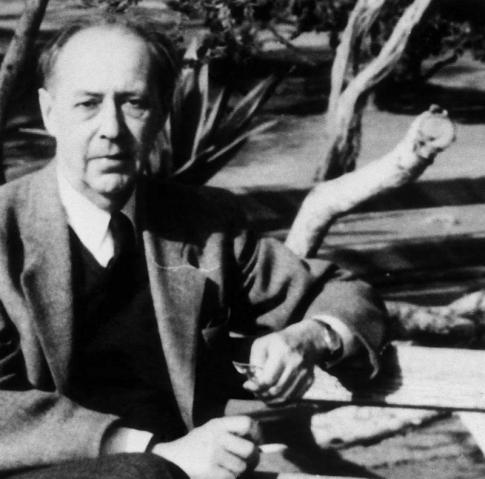Sándor Márai

Sándor Márai was a Hungarian writer and journalist.
Sándor Márai (1900 - 1989) was a Hungarian writer and journalist.
“Do you also believe that what gives our lives their meaning is the passion that suddenly invades us heart, soul, and body, and burns in us forever, no matter what else happens in our lives? And that if we have experienced this much, then perhaps we haven’t lived in vain? Is passion so deep and terrible and magnificent and inhuman? Is it indeed about desiring any one person, or is it about desiring desire itself? That is the question. Or perhaps, is it indeed about desiring a particular person, a single, mysterious other, once and for always, no matter whether that person is good or bad, and the intensity of our feelings bears no relation to that individual’s qualities or behavior?”
“... deep inside you was a frantic longing to be something or someone other than you are. It is the greatest scourge a man can suffer, and the most painful. Life becomes bearable only when one has come to terms with who one is, both in one's own eyes and in the eyes of the world. We all of us must come to terms with what and who we are, and recognize that this wisdom is not going to earn us any praise, that life is not gong to pin a medal on us for recognizing and enduring our own vanity or egoism or baldness or our pot-belly. No, the secret is that there's no reward and we have to endure our characters and our natures as best we can, because no amount of experience or insight is going to rectify our deficiencies, our self-regard, or our cupidity. We have to learn that our desires do not find any real echo in the world. We have to accept that the people we love do not love us, or not in the way we hope. We have to accept betrayal and disloyalty, and hardest of all, that someone is finer than we are in character or intelligence.”
“Vienna wasn't just a city, it was a tone that either one carries forever in one's soul or one does not. It was the most beautiful thing in my life. I was poor, but I was not alone, because I had a friend. And Vienna was like another friend. When it rained in the tropics, I always heard the voice of Vienna. And at other times too. Sometimes deep in the virgin forests I smelled the musty smell of the entrance hall in Hietzing. Music and everything I loved was in the stones of Vienna, and in people's glances and their behavior, the way pure feelings are part of one's very heart. You know when the feelings stop hurting. Vienna in winter and spring. The allés in Schönbrunn. The blue light in the dormitory at the academy, the great white stairwell with the baroque statue. Morning ridings in the Prater. The mildew in the riding school. I remember all of it exactly, and I wanted to see it again...”
“I am thinking that people find truth and collect experiences in vain, for they cannot change their fundamental natures. And perhaps the only thing in life one can do is to take the givens of one’s fundamental nature and tailor them to reality as cleverly and carefully as one can. That is the most we can accomplish.”
“We age slowly. First our pleasure in life and other people declines, everything gradually becomes so real, we understand the significance of everything, everything repeats itself in a kind of troubling boredom. It's the function of age. We know a glass is only a glass. A man, poor creature, is only mortal, no matter what he does. Then our bodies age: not all at once. First it is the eyes, or the legs, or the heart. We age by installments. And then suddenly our spirits begin to age: the body may have grown old, but our souls still yearn and remember and search and celebrate and long for joy. And when the longing for joy disappears, all that are left are memories or vanity, and then, finally, we are truly old. One day we wake up and rub our eyes and do not know why we have woken...Nothing surprising can ever happen again...there's nothing we want anymore, either good or bad...That is old age. There's still some spark inside us, a memory, a goal, someone we would like to see again, something we would like to say or learn, and we know the time will come, but then suddenly it is no longer important to learn the truth and answer to it as we had assumed in all the decades of waiting. Gradually we understand the world and then we die.”
― Sándor Márai




 del.icio.us
del.icio.us Digg
Digg

Post your comment